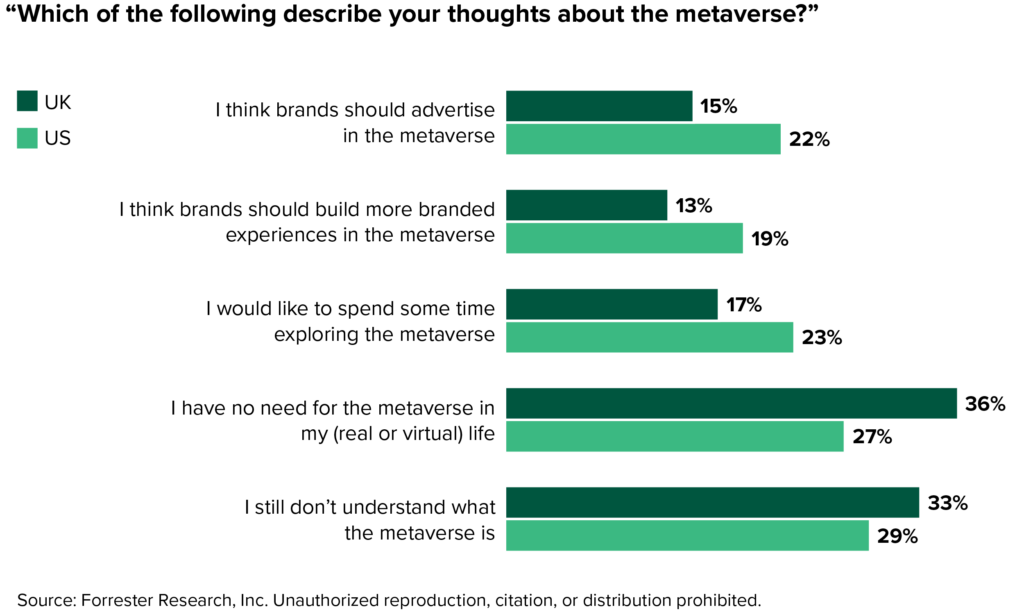Consumers Aren’t Ready For The Metaverse Yet
The metaverse moved from a fantastical concept to front-page news this past April after Epic Games announced $1 billion of funding to support its long-term metaverse vision. In May, Microsoft laid out its “metaverse tech stack” that enables metaverse app development. Then in July, Mark Zuckerberg declared Facebook a “metaverse company.” Since then, the headlines of brands staking their claim on the nascent and amorphous metaverse have only continued to multiply.
Touted as the successor to the internet, the metaverse promises an immersive and interoperable digital experience where one’s persistent avatar can instantly transport to and interact across a set of connected virtual worlds. Like the internet, no one company owns the metaverse, but a standard set of protocols and currencies would create a seamless user experience — akin to the OASIS, featured in the book-turned-motion picture, Ready Player One.
In August, Forrester surveyed 1,263 online adult consumers (572 US and 691 UK) to learn about their current attitude toward the metaverse. We provided a brief description of the metaverse followed by a series of five statements where we asked respondents to select those that apply. Less than a quarter (23%) of respondents in the US and only 17% of those in the UK expressed that they would “like to spend some time exploring the metaverse.” Most either responded that they still don’t understand it (29% US and 33% UK) or indicated that they have no need for it in their lives (27% US and 36% UK).

Brands: Test And Learn But Keep Your Expectations Low
The post-internet metaverse is far from reality. Still, several self-contained virtual world platforms like Fortnite and Roblox are providing opportunities for “metaverse-lite” brand activations — like those from Ariana Grande, Hyundai, and Vans. But consumers aren’t sold quite yet: Forrester’s survey found just 19% of US online adults and 13% of UK online adults who indicated they think companies should build more branded experiences in the metaverse. In its current state, the metaverse is prime (virtual) real estate for brands looking to:
1. Make press headlines with first/early-mover media innovations
2. Test and learn as the metaverse evolves toward its vision
3. Reach a subset of the Gen Z/young Millennial audience
However, brands that expect a revenue-based ROI from their metaverse custom media buys will be sorely disappointed. At best, your brand might earn some awareness points … for now. Instead, use these tests to fine-tune your marketing playbook for the virtual world.
I’d love to hear how your brand is approaching the metaverse. Tweet me your thoughts at @McProulx, or let’s chat more about it via a Forrester guidance session.
